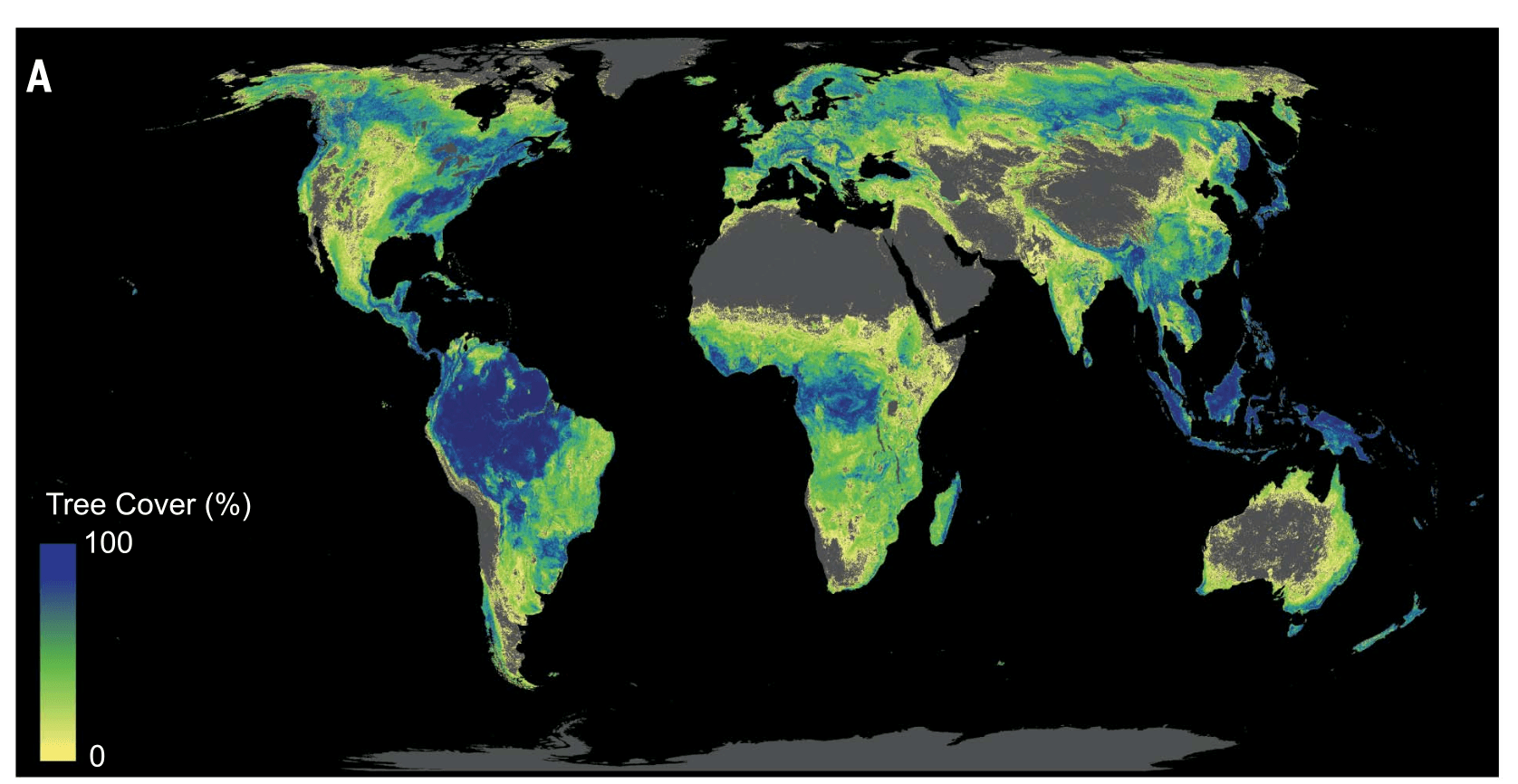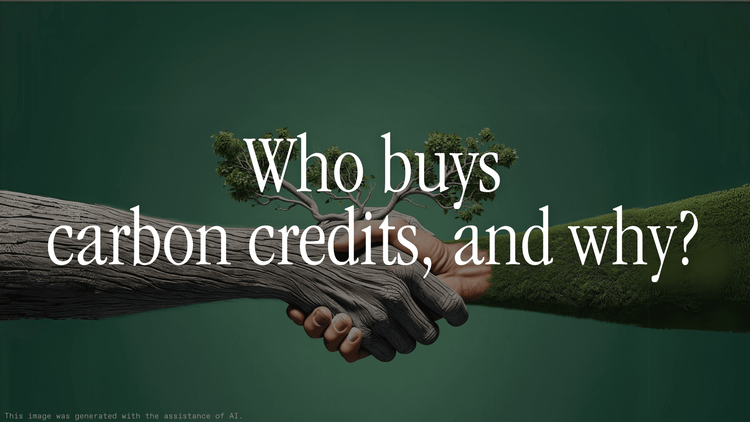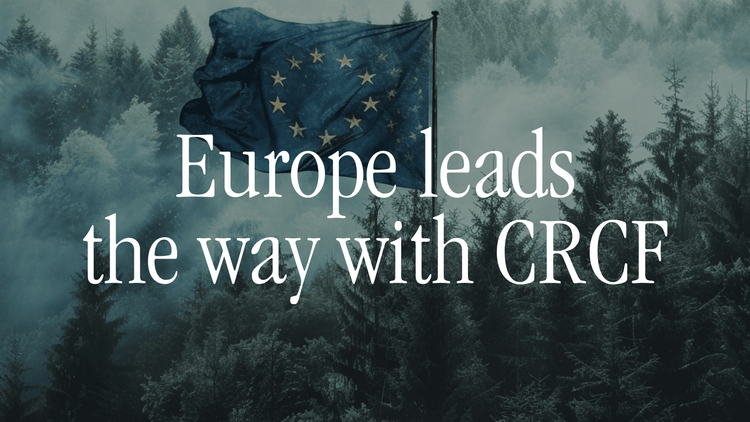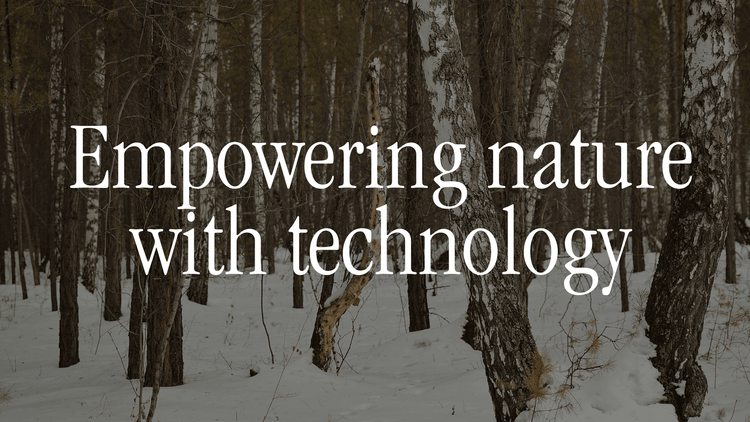Lisett Luik, Co-founder, COO
I’m a landowner – how do I know if the new forest economy is relevant for me?
By now you may have heard about the potential for carbon and biodiversity to change the way you manage your land and generate extra income.
But is the new forest economy for all landowners? How do you know if it’s a fit for you? To help you decide, we’ve put together the three main questions to ask yourself.

1. Are you interested in protecting the planet and benefitting nature?
First and foremost, participating in the new forest economy – whether through afforestation or impact forestry or in the future, biodiversity – requires the willingness to be a part of positive change. Changing your land management practices might require effort from you - this could include things like planting a new forest or changing your forest rotation cycle.
For example, Tom* (name changed), a landowner we spoke to soon after our launch, put it like this: “I’m a relatively small landowner (less than 50 hectares in total), but if I knew that my land can be a part of the solution, I’d be willing to put in the work. However, I’m worried about greenwashing, so I want to know that the impact is real.” We did an initial land analysis for Tom and found that his land could store over 2523 tonnes of CO2. That is equivalent to taking 548 passenger cars off the road for a year! This impact was significant enough that Tom is proceeding with an afforestation project.
To decide whether a carbon project - such as afforestation - is right for you, consider whether the impact you can have means you’re willing to undertake the changes needed.

Across the world, global tree cover could increase by 900mil hectares, which could help offset as much as 2/3 of human emissions. Map from a study published in Science: “The global tree restoration potential”. Link
2. Do you own your land outright and/or have the ability to make decisions regarding it?
In order to participate in carbon projects, all of the owners of the land need to be aware of and agree to join.
Why is this important? Because participating in a carbon project involves making active land management decisions that have a long-term impact - such as choosing what kind of trees to plant.
This means that if your land is jointly owned, the other co-owners should also learn about the carbon project you’re considering and would eventually need to sign the same contract you will sign. If they are in doubt or don’t really understand what it’s all about, feel free to refer them to us at Arbonics – we’d be happy to give them more context.
3. Is your land free from any legal requirements to manage it in a certain way?
(e.g. conservation rules like Natura 2000; high-value farmland that is legally protected; previously forested land that requires replanting)
For carbon credits to be real and proven, they need to have additionality. This essentially means that the activity that generated the credits (such as planting a new forest) would not have otherwise happened. If, for example, the land is under a legal obligation to replant, afforestation there would not be additional. Hence for your land to be suitable for a carbon project, the activity that generates the credits (e.g. planting for afforestation or harvest cycle change for impact forestry) needs to be freely allowed, but not required, under current law.
This means that areas which have a legal requirement to replant, for example, are not eligible for afforestation because they are already expected to be managed as forestland.
If you’re not sure if your land is suitable or not, get in touch - our data-based carbon opportunity assessment can provide a quick answer and highlight areas that are best suited for afforestation.
All this sounds good - what next?
If the answer to all three of the above questions is yes, you might be well-suited to participating in the new forest economy and earning extra income from carbon storage on your land.
To understand roughly how much you could earn from planting new forests (afforestation) try our carbon estimator. You can also read more about how to earn carbon credits through afforestation and what activities are required here and about monitoring afforestation projects here.
When you’re ready for more information and a detailed analysis of your land, get in touch with us here.
Arbonics is a tech-based carbon and ecosystem platform for forest-and landowners in Europe – bridging the analogue world of forestry with the world of tech to fight climate change. We partner with landowners to access new revenue streams by helping them quantify, monitor and sell the environmental benefits of sustainable land management.
Are you a landowner? Introduce yourself here and we will get in touch to discuss opportunities with your land.
Subscribe to our newsletter here and follow us on Facebook, LinkedIn and Twitter for latest news.


